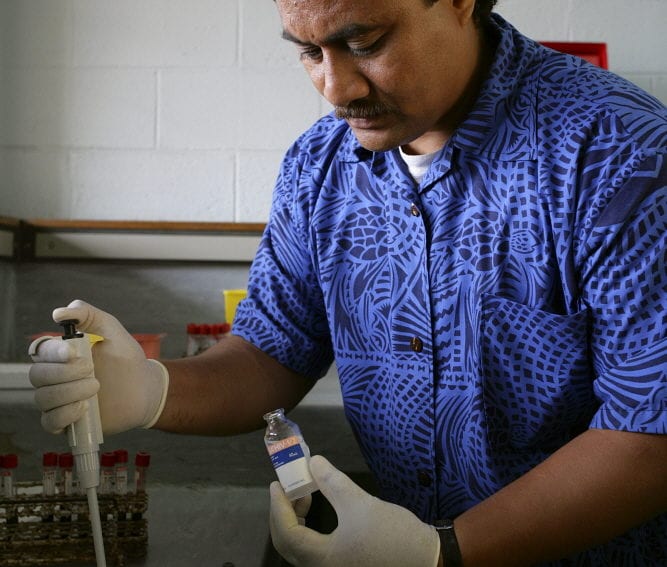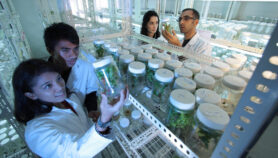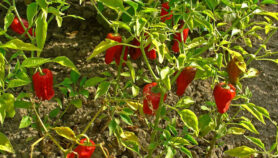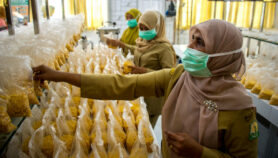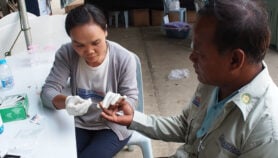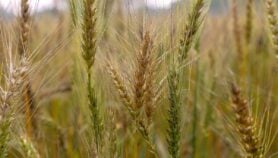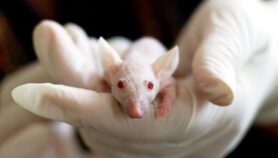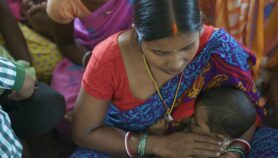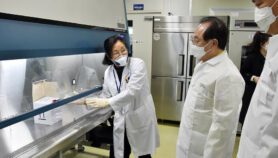By: Gilbert Felongco
Send to a friend
The details you provide on this page will not be used to send unsolicited email, and will not be sold to a 3rd party. See privacy policy.
[MANILA] Samoa, the first island country in the South Pacific to gain independence, is in the midst of building up its research and development (R&D) capabilities to give its economy added boosts.
Formerly known as Western Samoa, the island nation has 189,000 inhabitants and an annual population growth of 0.8 per cent, according to 2012 data from UNESCO.
A former protectorate of New Zealand, Samoa gained independence in 1962. It is considered less affluent than neighbouring American Samoa, whose GDP per capita was estimated by CIA World Factbook at US$8,000 in 2007 while that of Samoa was US$6,200 in 2013.
Samoa’s economy is largely dependent on remittances of its overseas workers. To support the development of such sectors as agriculture and industry, the government established the Scientific Research Organisation of Samoa (SROS) in 2006 to undertake scientific and technical research and develop new technologies to add value to the country’s principal export products such as copra and coconut oil.
Funded by the government and foreign grants, the SROS focuses on: plant and food technology research, developing and analysing food quality, security and safety standards; nutrition and safety standards; environment and renewable energy, developing sustainable cleaner energy sources such as bioethanol and biodiesel. The latter effort is aimed at reducing Samoa’s dependence on imported fossil fuels.
SROS provides technical know-how not just to benefit government ministries and corporations, but also the local communities. Under the Strategy for Development of Samoa for 2012-16, SROS is involved in the revival of agriculture through improvements in postharvest technologies, and in developing knowledge resource for the use of local industries in boosting exports.
Although most of these activities are funded through SROS, a small number of the research projects are financed by local companies themselves. These efforts, however, are small and highly focused, says Ken Wong, a science research adviser from Cambodia and an SROS volunteer member involved in the preparation and review of policies and plans on the commercial potential of research projects.
Wong estimates the number of local scientists and engineers in Samoa to be less than 100. SROS itself has some 40 of these experts in its staff. “Science education and work opportunities are lagging in Samoa due to limited financial resources (SROS only has a yearly budget of about US$3 million),” he says.
Since its establishment, SROS has successfully set up such projects as a pilot plant for producing biodiesel from coconut oil, which now supplies government vehicle fleets. Another is the production of flour from breadfruit and cassava, a gluten-free substitute for imported flour. It also initiated an industrial processing line for bottling avocado oil in 2012, which led to the sale of a promotional prototype at local supermarkets.
But more needs to be done in the way of ploughing in necessary funds and building capacity for science research and education, especially since Samoa is vulnerable to cyclones. While it only gets one cyclone every year, it is often destructive. In December 2012, cyclone Evan killed at least 14 people and caused substantial damage on infrastructure.
This has prompted SROS and the Samoan government to take a more holistic approach in research and development. SROS has also established collaborations with international scientists at prestigious research organisations to build up its scientific research capabilities.
Among the entities that SROS has ties with are the Victoria University of Wellington in New Zealand, University of Newcastle (Australia), and the University of South Wales.
Ron Browrey, professor and honorary researcher at SROS, tells SciDev.Net: “SROS has correctly decided to focus on the development and application of research rather than fundamental research.” The country would benefit from “further investments in people and facilities” to build up its science and research expertise to improve the Samoan economy, he says.
This article has been produced by SciDev.Net's South-East Asia & Pacific desk.


